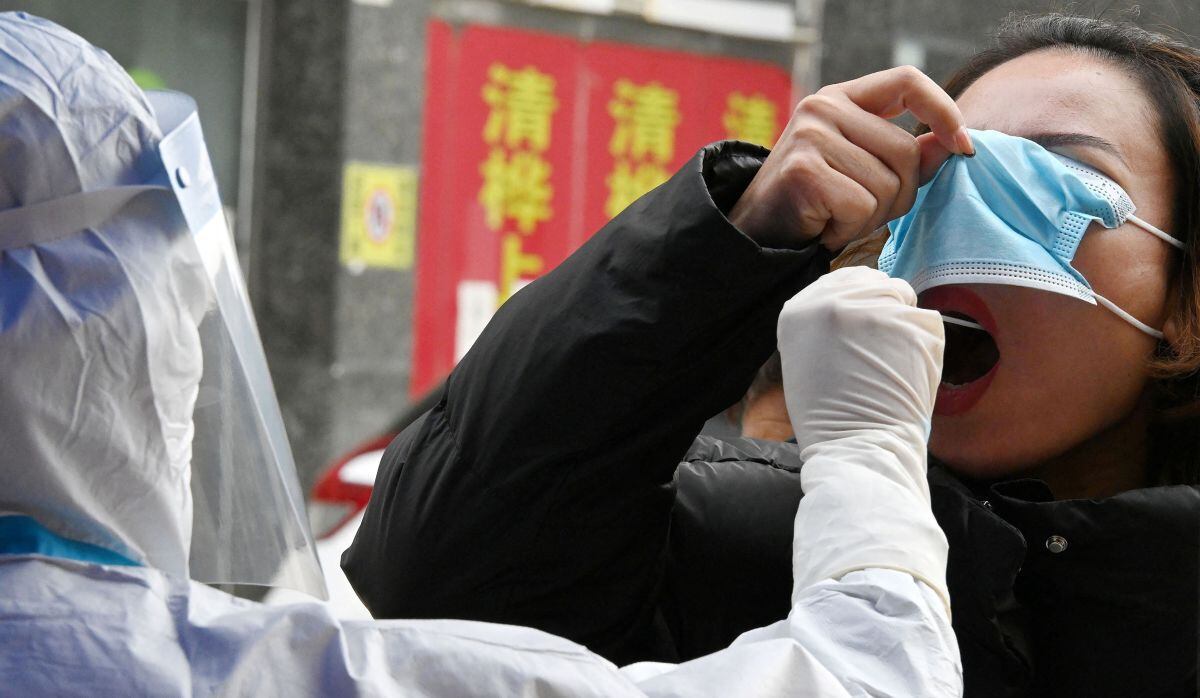
Faced with the return of the pandemic and the fall of the markets, China had to promise that it would support the activity, even if it means changing the course of its economic policy.
“Concrete measures must be taken to strengthen the economy in the first quarter”: this phrase, pronounced on Wednesday after a government meeting, had an immediate effect on the markets.
Although no concrete measures were announced, the Hong Kong stock market gained 16% in two days, after several sessions of decline due to the return of COVID-19 in China.
“The lockdown is the main reason for Beijing’s decision,” said Chen Long, an analyst at Plenum.
Although it was the first country in the world to emerge from the pandemic in 2020, China has suffered its worst wave since it began in recent days.
Tens of millions of people are confined, including the entire population of the city of Shenzhen (south), the “Chinese Silicon Valley”, which houses the headquarters of the Chinese giants Huawei (telephony, 5G) and Tencent (internet, video games) .
It is the third largest city in China in terms of GDP.
The deterioration in sanitary conditions comes against a backdrop of slowing growth, aggravated by low consumption, tightening regulations in several sectors, and uncertainties related to Ukraine.
“China is in an unprecedented battle” on the economic front, said Clifford Bennett, an analyst at Australia-based ACY.
The government expects growth this year to be just 5.5%, its lowest forecast in three decades.
“On the tightrope”
In this context, the Government seems willing to relax its control over the private sector, which has especially penalized technology and real estate companies in the last two years.
In the digital sector, the authorities have been particularly intransigent on issues such as competition or personal data.
This “rectification” of previously widespread practices has caused the tech giants to lose billions in capitalization since 2020.
Although it will stay the economic course, Beijing insisted on Wednesday on the need for regulation to be “transparent and predictable”.
Real estate activity has also been affected by measures to clean up a sector plagued by debt and marked by rampant speculation.
Wednesday’s meeting called for “mitigating risks” and adopting “support measures” to “accompany the transformation” of a sector that accounts for more than a quarter of China’s GDP, along with construction.
Since 2020, many developers have struggled to stay afloat, including giant Evergrande, on the verge of bankruptcy.
Beijing is walking a “tightrope” trying to “deflate speculative bubbles” without “provoking a collapse,” said analyst Rajiv Biswas of IHS Markit (S&P Global).
In a context of intense tensions with the United States, China has been reducing the size of its technological giants for a year.
The government is reluctant to let them trade abroad, preferring to raise funds in the domestic market (Hong Kong, Shanghai, Shenzhen and Beijing).
The “Chinese Uber”, Didi, was forced to withdraw from Wall Street last year, having entered the market without the approval of the communist regime.
The Chinese government said on Wednesday that it was “working” with Washington on the issue of listing Chinese companies in the United States.
The Russian invasion of Ukraine is “certainly” not unrelated to Beijing’s new guidelines, Bennett points out.
China is under intense diplomatic pressure not to be a lifeline for Russia, hit by countless sanctions since the Ukraine invasion.
But Beijing is reluctant to part with its ally, at the risk of finding itself under Western sanctions.
Source: Gestion
Ricardo is a renowned author and journalist, known for his exceptional writing on top-news stories. He currently works as a writer at the 247 News Agency, where he is known for his ability to deliver breaking news and insightful analysis on the most pressing issues of the day.











